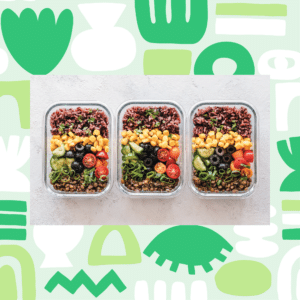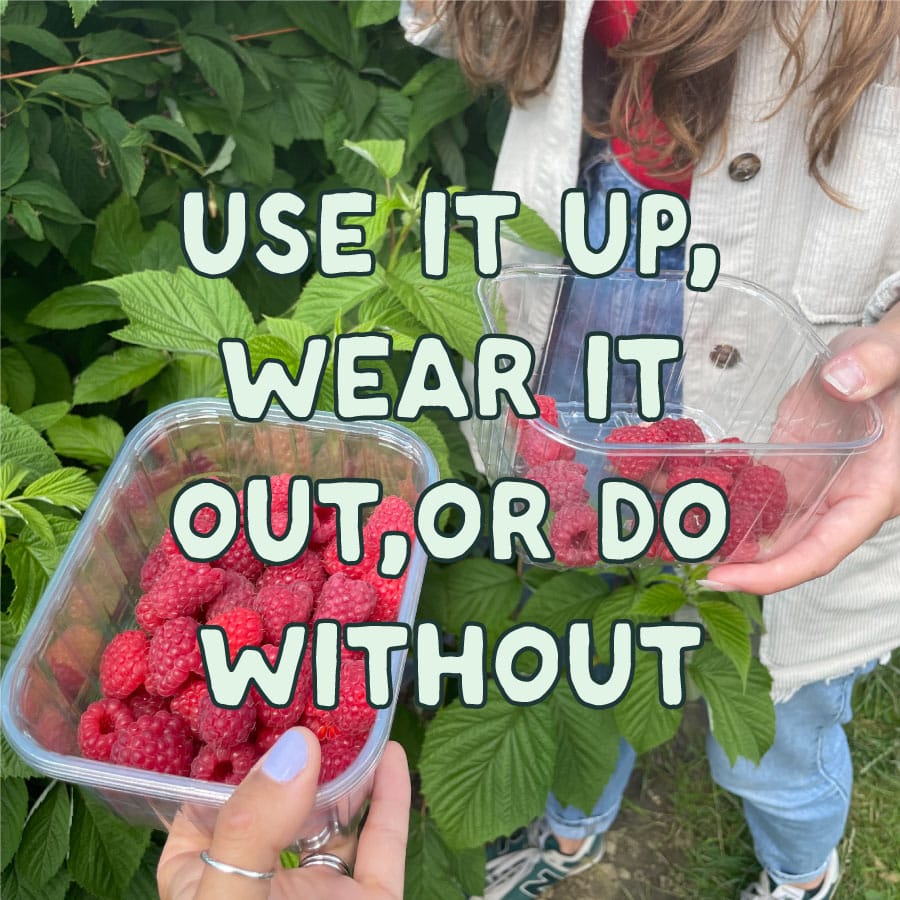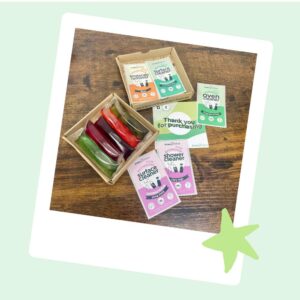
We often think of generation Z being at the forefront of eco-friendly living. Some of the loudest voices in the movement are young people eg. our girl Greta Thunberg. However the OGs at sustainable living were our grandparents generation. The post war, depression era generation were minimalists before it was cool and because it was necessary. Phrases like ‘Waste not, want not’ and ‘Make do and mend’ is an attitude we could all adopt more of in this wasteful society.
We are aware that we are living in a completely different time and buying new is often cheaper and easier than repairing old. But with climate change being a very real and present threat it’s time to make some changes. Instead of looking forward, look back. We can learn from our grandparents habits and recycle ideas from previous generations. From hand-me-downs to making jams they knew how to live a waste free life.
Here are 12 eco-friendly tips we learned from our grandparents:
1. Growing our own food
In the 1940s the average rural household was growing 98% of the fruit and veg they consumed. Even in urban locations with smaller gardens, households were still growing 49% of their fruit and veg in summer. Compare to 2021 when only 35% of individual’s in the UK grow their own fruit, veg or herbs. There are so many benefits to growing your own grub. Food you’ve grown yourself is zero waste, has zero food miles, no pesticides and it’s cheaper. You can read the benefits in more detail here.
2. Anything but clingfilm
When storing leftover food and ingredients in the fridge, use anything but plastic clingfilm. Whether you use a plate as a lid for a bowl, old takeaway boxes or these nifty silicone lids, anything is a better option than single use clingfilm.
3. Reusing gift wrap
If you open wrapping paper carefully you can reuse it. Keep a draw full of old gift bags, tissues paper and wrapping paper. It’s great for last minute gifts as you have wrapping paper on hand. Don’t throw away ribbons from other gifts and online orders, it can be used for wrapping future presents or even as cute hair accessories.
4. Visit your cobbler
If your shoes break take them to be repaired. Cobblers only repair leather not synthetic shoes so when your best pair of leather wedding / best occasion shoes start to wear down don’t throw them away. This isn’t as part of our culture anymore but it’s worth it especially if the only reason you are buying new ones is for the broken heel or the worn down sole. It’s a fraction of the price compared to purchasing a new pair.
5. Hand me downs
Charity shops often have far too many clothes donated. Do clothing swaps with your family and friends instead. Hand-me-down outfits make so much sense, especially for children who grow out of clothes quickly.
6. Sewing and repairing clothes
With shows like BBC’s Great British Sewing Bee becoming popular it feels like more people are starting to knit, crochet, sew and mend their clothes. But as per usual our grandparents were doing it first. Darning, knitting and sewing was the norm until the 80s and 90s when low cost high street fashion hit the shelves and sewing stopped being taught in schools. Fixing and mending and making new clothes is better for the planet and cuts down on overconsumption!
7. Use old things to make new toys
Create outdoor toys for your children from stuff that already exists eg. a tyre swing or a pallet tree house.
8. Button Box
Whenever you get a new shirt keep the spare button in a safe place with other spare buttons. If you do ever loose a button you will know where to look for the spare. If you ever go to make yourself an outfit, you will have a collection of buttons to use.
9. Pickle and Jam
Homemade jam was always a staple in our grandparents home. Learning how to make pickles, jams and sauerkraut yourself. It doesn’t only save money, it’s tastier in our opinion. Also it’s a great zero waste Christmas gift if you are searching for ideas.
10. Fruit Picking
Not only is this a fun activity but it means you get yummy fruits without a large carbon footprint. If you are doing it at a farm it’s a win for supporting local farmers. If you go foraging in the hedge rows it’s free!
11. Leftovers
Weird and wonderful meals come from the creativity of using leftovers. The post rationing generation didn’t waste anything from bubble and squeak to soups everything was used up. There are all sorts of creative recipes out their on the internet if you need the inspiration. From zero waste pesto to Jaime Oliver’s recipes to reduce food waste. Further instead of buying food specifically to snack on, leftover food from dinner was the snack.
12. UK Holidays
Cheap flights to Europe from low cost airlines isn’t something our grandparents had the luxury of. Holidays were taken far closer to home. Think road trips to the British seaside and nibbling Cornish pasties on the sand. The UK is beautiful so to save on large carbon emissions from flying choose to stay put for your next getaway.
‘Use it up, wear it out, or do without’
Obviously, not all modern habits are bad. Our cleaning products are a mix of both old and new. New technology allows us to create innovative water-soluble sachets. Contrastingly, using our products requires an ‘old school’ attitude. Reusing your cleaning bottles is something our grandparents would 100% have done if they had plastic bottles. Phrases such as ‘Use it up, wear it out, or do without’ embody this attitude. Throwing away a bottle after using it once wouldn’t have happened. Shop our products here.
Further Reading

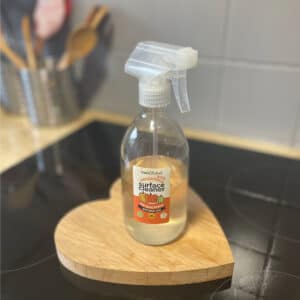
Gushing over Gourds: Eco-Friendly Halloween
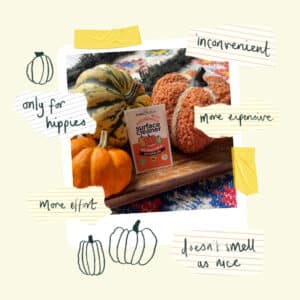
Myth Busting – Plastic Free Cleaning Edition
